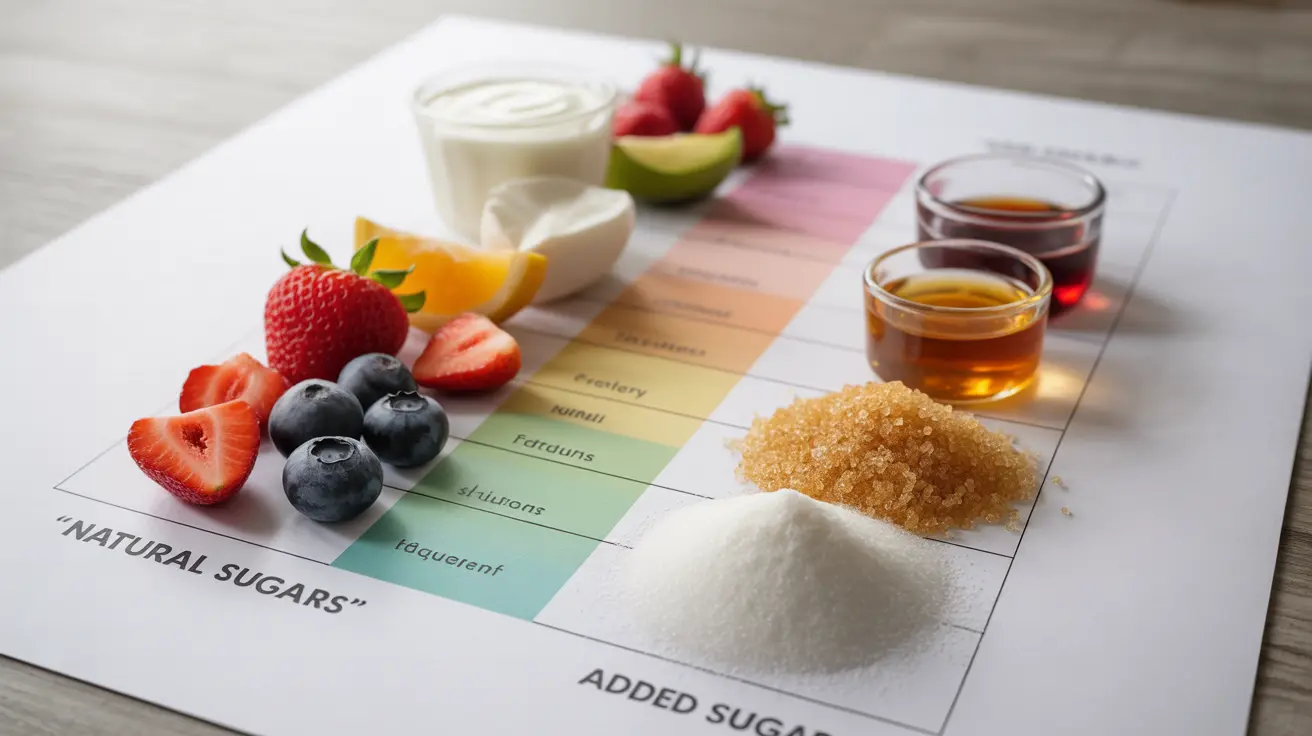In today's food landscape, understanding the role of added sugar in our diet has become increasingly important for maintaining good health. While sugars are a natural part of many nutritious foods, the prevalence of added sugar in processed foods has raised significant health concerns among medical professionals and nutrition experts.
This comprehensive guide will help you understand the crucial differences between added and natural sugars, their effects on your health, and practical ways to make informed dietary choices.
The Fundamental Difference Between Added and Natural Sugars
Natural sugars occur inherently in whole foods like fruits (fructose) and dairy products (lactose). These foods come packaged with essential nutrients, fiber, and proteins that help regulate sugar absorption. Added sugars, on the other hand, are sugars and syrups that manufacturers add to foods during processing or preparation.
Common Forms of Added Sugar
Added sugars appear under many names on ingredient labels, including:
- High fructose corn syrup
- Cane sugar
- Maple syrup
- Honey
- Agave nectar
- Dextrose
- Maltose
Hidden Sources of Added Sugar
Many everyday foods contain surprising amounts of added sugar:
- Breakfast cereals and granola
- Flavored yogurt
- Pasta sauces
- Condiments and dressings
- Bread products
- Energy drinks and sodas
- Protein and granola bars
Health Implications of Excessive Added Sugar
Regular consumption of foods high in added sugar can lead to several health concerns:
Short-term Effects
- Energy crashes and mood swings
- Dental problems
- Increased hunger and cravings
- Inflammation
Long-term Consequences
- Increased risk of type 2 diabetes
- Weight gain and obesity
- Heart disease
- Liver problems
- Chronic inflammation
Strategies for Reducing Added Sugar Intake
Implementing these practical steps can help you minimize added sugar consumption:
Reading Labels Effectively
Learn to identify added sugars in ingredient lists and understand nutrition facts panels. The FDA now requires manufacturers to list added sugars separately from total sugars on nutrition labels.
Making Smarter Food Choices
- Choose whole fruits instead of fruit juices
- Opt for plain yogurt and add fresh fruit
- Cook meals at home to control ingredients
- Select unsweetened beverages
- Choose whole grain products with minimal added sugars
Frequently Asked Questions
What is the difference between added sugar and natural sugar, and how do they affect health?
Added sugars are sweeteners added during food processing, while natural sugars occur naturally in foods like fruits and dairy. Natural sugars come with beneficial nutrients and fiber that slow absorption, while added sugars provide empty calories and can lead to rapid blood sugar spikes.
How can I identify and limit added sugar in my diet to reduce health risks?
Read nutrition labels carefully, looking for terms ending in "-ose" and syrups. Choose whole, unprocessed foods whenever possible, and aim to keep added sugar intake below 10% of daily calories, as recommended by dietary guidelines.
What are some common sources of added sugar in everyday foods that I should watch out for?
Common sources include breakfast cereals, flavored yogurts, soft drinks, baked goods, condiments, and processed snack foods. Even seemingly healthy foods like granola bars and smoothies can contain significant amounts of added sugar.
Is it safe to consume natural sugars from fruits and dairy products, or are there any health concerns?
Natural sugars from whole fruits and dairy products are generally safe and healthy when consumed as part of a balanced diet. These foods provide essential nutrients, and their fiber content helps regulate blood sugar levels.
How can reducing added sugar intake help prevent weight gain and diet-related health issues like diabetes?
Reducing added sugar intake helps maintain stable blood sugar levels, reduces empty calorie consumption, and supports better insulin sensitivity. This can lead to better weight management and lower risk of developing type 2 diabetes and other metabolic disorders.




